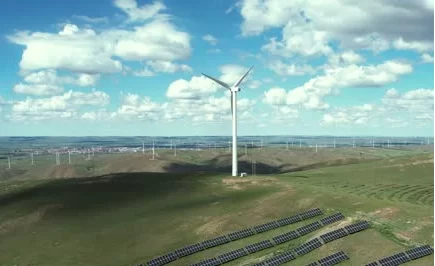BESS Renewable Energy: Powering a Sustainable Future
In today’s world, the need for clean, sustainable energy has never been greater. As fossil fuels continue to deplete, and the effects of climate change become more apparent, renewable energy solutions are gaining momentum. Among the many technologies revolutionizing this space is BESS, or Battery Energy Storage Systems. In this blog post, we’ll dive into how BESS renewable energy is transforming how we produce, store, and use energy for a cleaner, greener future.

What is BESS Renewable Energy?
BESS, or Battery Energy Storage Systems, is an innovative technology that allows us to store electricity generated from renewable sources like solar, wind, and hydro. Unlike traditional energy systems that rely on constant energy production, BESS enables us to save excess energy produced during periods of low demand and release it when it’s needed most. This makes BESS renewable energy a powerful solution for balancing supply and demand in the energy grid.
How Does BESS Work?
At its core, BESS renewable energy works by storing surplus energy generated from renewable sources in large battery units. These batteries can store energy for extended periods and release it when required. This means that energy produced during sunny or windy days can be saved for use during cloudy days or calm weather. By doing so, BESS helps to stabilize the grid and ensures that renewable energy is available at all times, even when the natural sources are not producing.
The Role of BESS in Renewable Energy Expansion
One of the biggest challenges facing renewable energy is its intermittency. Solar and wind energy production can fluctuate based on weather conditions and time of day. This makes it difficult to rely solely on renewables without having a backup plan in place. BESS renewable energy systems solve this problem by providing a reliable source of stored energy that can be tapped into when the sun isn’t shining, or the wind isn’t blowing.
The expansion of BESS renewable energy systems is a game-changer in the industry. By enabling more reliable access to renewable energy, BESS is making it easier for nations and companies to transition away from fossil fuels. This transition is essential for reducing greenhouse gas emissions and combating climate change.
Why BESS is Essential for a Clean Energy Future
BESS renewable energy is not just a backup for intermittent power generation; it is a key enabler for integrating more renewable energy into our power grids. As more solar panels and wind turbines are installed, the need for storage systems like BESS becomes even more critical. By storing excess energy and distributing it efficiently, BESS ensures that we can rely more heavily on renewables without experiencing power outages or imbalances.
Moreover, BESS systems allow for energy independence. For instance, homeowners with solar panels can use a BESS to store the energy they generate and use it during peak hours or at night. This reduces their reliance on the traditional grid and cuts down on energy costs. On a larger scale, cities and industries can utilize BESS renewable energy systems to create resilient energy infrastructures that are less vulnerable to blackouts and disruptions.
BESS and the Future of Electric Vehicles
The rise of electric vehicles (EVs) is another important area where BESS renewable energy plays a crucial role. As more people make the switch to EVs, the demand for electricity is expected to skyrocket. BESS systems can help manage this surge in demand by storing energy during off-peak hours and providing it when more vehicles are charging. This can prevent strain on the grid and ensure that charging stations have a steady supply of renewable energy.
Additionally, BESS systems can be integrated with EV charging networks to create a sustainable loop. As EVs become more widespread, these systems will help balance the grid and make sure that renewable energy is powering our transportation systems in a cleaner, more efficient way.
The Economic Benefits of BESS Renewable Energy
Beyond its environmental benefits, BESS renewable energy also offers significant economic advantages. By reducing the need for costly energy imports and fossil fuel infrastructure, BESS can help lower energy costs for both consumers and businesses. It also creates opportunities for job growth in the renewable energy sector, from manufacturing and installation to maintenance and research.
Moreover, renewable energy provides cost savings by reducing energy waste. In traditional energy systems, excess energy is often lost if it can’t be used immediately. With BESS, that surplus can be stored and used later, making energy use more efficient and cost-effective.
Conclusion: Embracing BESS for a Brighter Future
As the world moves toward a more sustainable future, renewable energy is paving the way for a cleaner, more reliable energy system. By addressing the challenges of intermittency and storage, BESS allows us to harness the full potential of renewable energy sources. Whether it’s powering homes, businesses, or electric vehicles, BESS is helping to create a future where clean energy is accessible to all.
The expansion of renewable energy systems is not only crucial for reducing our carbon footprint but also for building resilient energy infrastructures that can support our growing energy needs. Embracing BESS today means investing in a brighter, more sustainable tomorrow.
